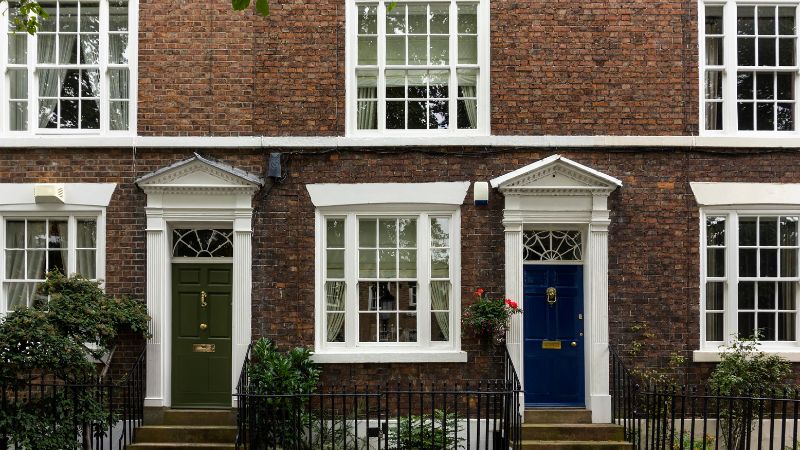Owning and running a hotel can often require funding support. Whether it’s in the early stages of hotel purchase, to allow for essential renovations to keep the hotel in premium condition, or for cash flow concerns during the hotel’s professional lifetime, debt financing represents a key tool for hoteliers.
Get a Quote
What is Bridging Finance?
Structured as a short-term funding solution that utilises the equity in property to secure significant sums of capital, bridging finance is fast and flexible, giving it advantages that traditional long-term financing, such as mortgages, cannot equal.
Often used for property purchases, developments, and renovation projects, bridging finance is perfect for hoteliers looking to make the most from their investment. To understand bridging finance, including an overview of the payment structure and exit strategies, read our in-depth Guide to Bridging Finance.
Why Choose Clifton Private Finance for your Bridging Finance Needs?
At Clifton Private Finance, our business bridging team is made up of experienced specialists who work every day to secure cost-effective, premium bridging finance for our clients. We offer:
- Dedicated expertise in hotel financing - We are well-versed in hotel property transactions, across the UK and Europe, utilising large-scale bridging finance to raise sums up to £50 million.
- Whole market lender relationships - With established relationships with decision makers across the range of bridging finance lenders in the UK, we offer customised lending arrangements tailored to your unique circumstances.
- High loan-to-value - Using just your hotel for security, we can offer finance up to 80% LTV, releasing more equity for capital use.
- Rapid turnaround - Our team work tirelessly to get your finance as quickly as possible. In many cases, a decision in principle can be raised the same day, with funds accessible in as little as 72 hours.
- First- and second-charge funding options - With flexible products, we will match you with lenders who offer both first-charge bridging finance for hotel purchases, and second-charge bridges that work alongside your primary mortgage to provide funds for renovation.
- Professional support - We will work with you throughout the process, developing a bespoke structure for your finance that works for you, developing a watertight exit strategy, and remaining on side from the moment of application until the loan term is completed.
- Additional finance experience - Our business team are here to help you with any cash flow or financing needs. We can work with you to obtain a range of other funding products as-and-when needed, from merchant cash advances through to asset finance.
Whether you’re acquiring a new hotel, refurbishing an existing property for modernisation, or looking to undergo major renovations, we will find a swift, low-cost bridging solution that works for you.
Reasons for Hotel Bridging Finance
The two key advantages to bridging loans are:
- Fast - Long-term financing, such as mortgages or traditional asset-based secured loans, rely on complex underwriting for risk assessment. This means they can take many weeks to set up and often opportunities are missed while waiting for the funding to come through. Bridging finance is rapid, often in place within a week of application.
- Flexible - Bridging finance has a tailored structure based on securities and an exit strategy that doesn’t require affordability checks or stress testing. It is not approved based on your income or credit rating, but on the value of your security and the assessed risk of your planned exit. For hoteliers with high-value property to use as collateral, and a clear plan for long-term stability, bridging finance is ideal.
Bridging finance is used in the hospitality industry for:

Property acquisition
One of the prime uses of bridging finance is to buy the hotel initially. The speed of bridging finance, coupled with its application flexibility means it is extremely efficient at seizing opportunities. This makes it ideal for auction or off-market purchases where traditional mortgages are simply too slow to meet strict deadlines.

Hotel flipping
Investors looking to make profits through buying rundown hotel properties, undertake a full renovation project, and then sell on use bridging finance to snap up buildings at bargain prices. Bridging finance will cover the cost of the purchase and can also pay for the full renovation and construction stage, providing a single point of funding that facilitates rapid renovation and resale. With an exit strategy based off the sale of the redeveloped hotel, bridging finance for flipping is the best, most-flexible solution to capital requirements.

Hotel refurbishment
Whether for light renovations that are purely internal, or heavy construction changes, such as extensions and basement conversions, bridging finance provides the funding solution. The speed of bridging finance means work can begin right away, while its flexibility means buildings in a poor state can still be used as viable security. Once the property has reached prime standard, remortgaging for long-term finance as an exit strategy is merely a formality.

Debt refinancing
Restructuring existing loans through bridging finance can lift cash flow burdens and provide the funds needed to put new expansion plans to work. A later hotel sale or remortgage for long-term repayment can form a solid exit strategy.

Hotel development
Businesses looking to build a hotel benefit from bridging finance. The quick application process allows developers to take advantage of opportunities in the fast-moving land market, often securing the site before full planning permission has been granted. Once planning is approved and architectural plans are drawn up, an exit strategy of long-term development finance replaces the bridging finance.
A Clifton Private Finance Success
The Bridging Finance Process
How can hotel bridging finance be obtained? Our process at Clifton Private Finance is well-structured and comprehensive:
- Initial consultation - Our advisor will discuss your requirements in-depth. With a team of experienced bridging finance specialists, this conversation will make you aware of the options available as well as give you the confidence you need to move forward.
- Tailored proposal - We will develop a customised financing solution that is unique to your hotel and the project, taking into account your business needs, the available equity for security, and your planned exit strategy.
- Agreement in principle - With direct contact with the lenders suitable for your proposition, we will be able to secure a same day decision.
- Valuation and underwriting - The lender will ensure a professional assessment is completed to value your property and understand your business financials.
- Legal work - We work hand-in-hand with your legal team to make sure the process is as quick and efficient as possible.
- Funds available - Depending on your circumstances, the funds will come through soon afterwards, as soon as 72 hours after the initial application.
Hotel Bridging Finance with Clifton Private Finance
Whether you’re a hotelier, developer, or entrepreneur entering hospitality, bridging finance could provide the funding power you need. Partnering with Clifton Private Finance gives you the support of industry experts, specialised in acquiring large-scale bridging finance for hotel projects. Speak to our team today and find out how we can support your hotel funding goals.









.jpg)


